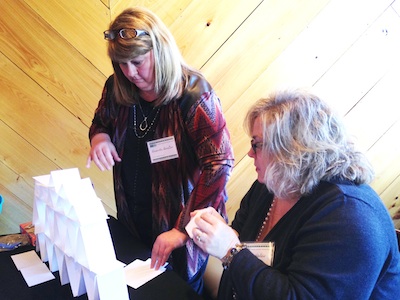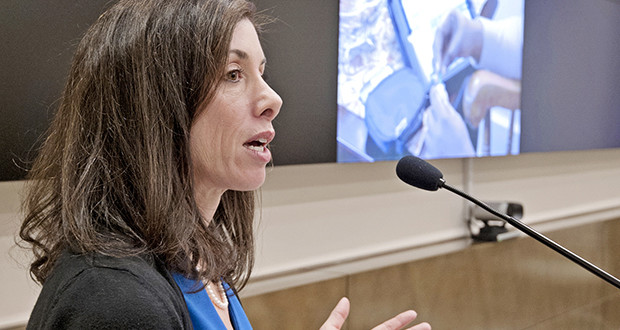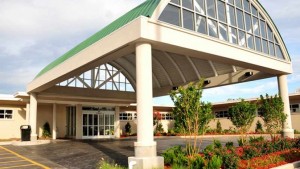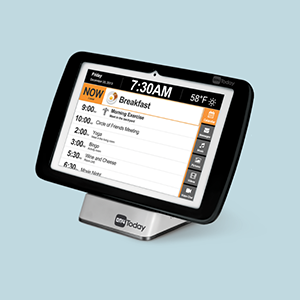CNA – Walter B. Crook Nursing Facility
| Position: | CNA – ALL SHIFTS |
| Department: | Walter B. Crook Nursing Facility |
| Hours: | 7am – 3pm, 3pm – 11pm, & 11pm – 7am |
| Position: | CNA – ALL SHIFTS |
| Department: | Walter B. Crook Nursing Facility |
| Hours: | 7am – 3pm, 3pm – 11pm, & 11pm – 7am |
| Position: | RN, Fulltime |
| Department: | Emergency Department |
| Hours: | 7pm-7am |

RULEVILLE, MS (Ben Caxton) — North Sunflower Medical Center was recognized as the Hospital of the Year at the 2017 Nightingale Awards Gala at the Marriott Downtown Jackson.

Dear Section Members:
Happy Spring to all. As I wrote this, Colorado was bracing for the 2nd spring blizzard of 2016 – no kidding! Since our last newsletter, I had the privilege of attending CSM 2016 in Anaheim, CA. For those of you who were able to attend CSM 2016, I’m sure you will agree that the conference was another smashing success thanks to the outstanding work of our education committee. At CSM 2016, we hosted a new informal event as a way to engage CVP Section members – we called the event a “Coffee Meet and Greet” – and I think it was another of CSM’s “smashing successes”. We hope to continue with this event in the future.
If you attended the CVP Section Business Meeting, you would have heard that the CVP Section Board of Directors is in the process of revising the CVP Section Strategic Plan which will guide our activities over the next 3 to 5 years. We also created and debated new Mission and Vision Statements, as well as an update to our Organizational Values. In this newsletter, I would like to introduce the new Cardiovascular & Pulmonary Section Mission Statement: “Optimizing human movement and health by advancing cardiovascular and pulmonary physical therapist practice, education and research excellence.”
A mission statement communicates the purpose of an organization by concisely outlining the goals and objectives of that organization. I believe we have captured the ambitions of the CVP Section in this statement – we will promote excellence in practice, education and research for all physical therapists and physical therapist assistants which will positively impact all of our stakeholders – from our patients to our referral sources to APTA to our legislatures to our section members.
In future newsletters, you will hear more about the strategic plan. I value your comments. As always, I encourage you to feel free to contact me if you have any questions, concerns or if you would just like to chat.
Cheers,
Daniel Malone PT, PhD, CCS President
Monday, March 21, 2016
In the fall of 2015, I was selected for an international volunteer assignment in St. Lucia, an island in the Caribbean. I was approved for the assignment due to my dual credentials as a physical therapist and a wound care specialist.
NSMC Board of Trustees has re-scheduled their Regular Board Meeting for the month of March. The Board will meet in the Hospital Board Room at 11:30 A.M. on Tuesday, March 22, 2016.
Position: | RN, Full-time |
Department: | Nursing Services Department |
Hours: | 7pm-7am |

North Sunflower nurses learn to think outside the box
Written by Anne Preus

By BECKY GILLETTE
The University of Mississippi Medical Center’s Center for Telehealth and Intel-GE Care Innovations has had such success providing the Diabetes Health Telehealth Network that it is being expanded to serve those with other chronic diseases and those underserved across the Southeast.

By Eric Wicklund on
The success of Mississippi’s telehealth-based diabetes program is prompting its parent health system to expand to other states – and other chronic disease groups.
The Diabetes Telehealth Network, a statewide remote care management program launched in 2014 by the University of Mississippi Medical Center’s Center for Telehealth, saved roughly $400,000, reduced A1C levels by 1.7 percent and saw no ER visits or hospitalizations among the 100 residents involved in the initial six-month pilot.
The program is now being expanded throughout the Southeast and will target COPD, heart failure, hypertension, and asthma as well as diabetes. In addition, UMMC has signed a five-year extension with Intel-GE Care Innovations, its partner in the Diabetes Telehealth Network, to help facilitate the expansion.
UMMC officials said they started with a known need – some 13 percent of Mississippi’s adults are living with diabetes and many face barriers to accessing quality care in a state that’s one of the poorest and most rural in the nation. They set realistic goals and produced measurable results, and now want to connect with 1,000 patients a month throughout the region by the end of the year.
“Half the state of Mississippi suffers from two or more chronic conditions, and we see so many of these patients come through our facilities on a daily basis,” Kevin Cook, CEO of UMMC’s University Hospitals and Health System, said in a November 2015 press release.. “We knew we needed to find a way to help these folks take control of their own health. By extending this program, we expect to save $189 million in Medicaid each year just with the diabetic population.”
“After seeing the success derived through our diabetes program with Care Innovations and the improvement in the quality of life it provided for those enrolled, we are ready to extend the benefits to other chronically ill populations and healthcare organizations who share our vision of a healthcare system that extends into the home,” he added.
To scale up the program, UMMC officials said they’re investing in new technology and hiring more staff, and will even add a new facility.
“We are offering this service not only to patients in Mississippi but outside of the state as well. We want the success of this program to impact as many lives as possible,” says Michael Adcock, FACHE, the administrator of UMMC’s Center for Telehealth. “To prepare for this, we have acquired new technology and employed additional staff to address our current needs and anticipated expansion. We are also planning for a new building to accommodate the growing needs for telehealth.”
The program is a feather in the cap for Intel-GE Care Innovations, a collaboration launched in 2011 to support the movement toward remote care management. Sean Slovenski, the company’s outgoing CEO, sees UMMC as a model for other providers around the country.
“You have to get one thing right before you go on, and with (UMMC) this is what we hoped would be the result,” he said. “The whole diabetes space is littered with apps and platforms that have come and gone, so it was a matter of finding something that worked, and then building on that success. Once you have that focus, you can add slices to the pie.”
Adcock said the remote monitoring platform includes a tablet assigned to the patient, enabling him or her to connect with and upload data from a variety of home-based devices, and equipped with a video conferencing link to care managers at UMMC. Center for Telehealth staff collect data from the patient every day and use that information to create a personalized care plan.
The Diabetes Telehealth Network – dubbed the first of its kind in the nation – also caught the attention of Mississippi Gov. Phil Bryant, who checked out the program at North Sunflower Medical Center late last year. The program’s success, he said, has helped the state in seeking federal support to extend broadband services to some of the state’s more remote communities.’
“This innovative partnership has gained the attention of the Federal Communications Commission as we are connecting patients in the rural town of Ruleville to a care management program they otherwise would not have access to in their town,” he told the Mississippi Business Journal last month.
Randy Swanson, Intel-GE Care Innovations’ new CEO, says the project hasn’t been without challenges. A care platform has to be versatile enough to adapt to each health system, he says, primarily because so many hospitals either don’t have the technology or are operating on legacy systems that can’t fully support the move to remote care.
Today’s technology platforms, he says, should be 10 percent standardized and 90 percent customized. Sadly, that isn’t the case with many EMR platforms.
“The EMR isn’t going to be the right place to load all that information,” he says.
http://mhealthintelligence.com/news/mississippi-scales-up-its-telehealth-network

By Paul Demko | May 16, 2015

What if you could read the exact blood sugar levels of your patients with diabetes right now, send this information to your care staff and alert your patients about their high glucose levels even if they’re 100 miles away—all with the help of a touch screen? Sound like futuristic fanfiction?